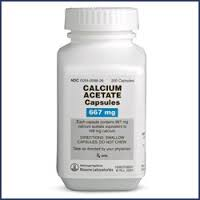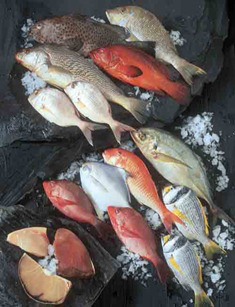End Stage Renal Diet
What do I need to know about phosphorus?
Phosphorus is a mineral found in many foods. If you have too much phosphorus in your blood, it pulls calcium from your bones. Losing calcium will make your bones weak and likely to break. Also, too much phosphorus may make your skin itch. Foods like milk and cheese, dried beans, peas, colas, nuts, and peanut butter are high in phosphorus. Usually, people on dialysis are limited to 1/3 pint (200ml) of milk per day. The renal dietitian will give you more specific information regarding phosphorus.
You probably will need to take a phosphate binder like Calcichew, or calcium acetate to control the phosphorus in your blood between dialysis sessions. These medications act like sponges to soak up, or bind, phosphorus while it is in the stomach. Because it is bound, the phosphorus does not get into the blood. Instead, it is passed out of the body in the stool.


What do I need to know about protein?
Before you were on dialysis, your doctor may have told you to follow a low-protein diet. Being on dialysis changes this. Most people on dialysis are encouraged to eat as much high-quality protein as they can. Protein helps you keep muscle and repair tissue. The better nourished you are, the healthier you will be. You will also have greater resistance to infection and recover from surgery more quickly.
Your body breaks protein down into a waste product called urea. If urea builds up in your blood, it's a sign you have become very sick. Eating mostly high-quality proteins is important because they produce less waste than others. High-quality proteins come from meat, fish, poultry, and eggs (especially egg whites).

Poultry and fish, like plaice, haddock , coley and pollock, are good sources of high-quality protein.
Talk With a Dietitian
Meat, fish, and chicken are good sources of protein. Talk with a dietitian about the meats you eat.
I will eat ______ servings of meat each day. A regular serving size is 3 ounces. This is about the size of the palm of your hand or a deck of cards.
Try to choose lean (low-fat) meats that are also low in phosphorus. If you are a vegetarian, ask about other ways to get your protein.
Low-fat milk is a good source of protein. But milk is high in phosphorus and potassium. And milk adds to your fluid intake. Talk with a dietitian to see if milk fits into your food plan.
I (will) (will not) drink milk. I will drink ______ cup(s) of milk a day.

